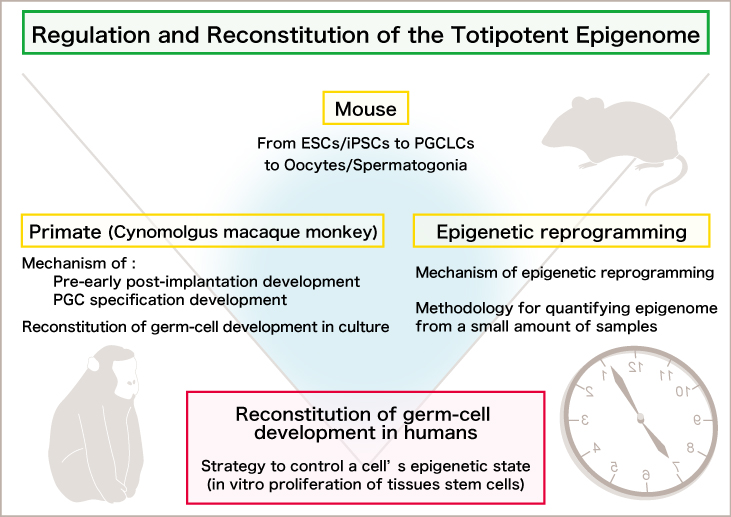As most people know, procreation depends on the fusion of two germ cells, sperm and oocytes, which transfers genetic and epigenetic information of the parents to the offspring. We are investigating the genetic and epigenetic mechanisms that determine the development of germ cells. These studies will also examine how aberrations in these mechanisms lead to related diseases such as infertility and genetic abnormalities in offspring.
We have successfully generated primordial germ cell-like cells (PGCLC) in vitro from mouse ESCs and iPSCs. As the name suggests, these cells behave like primordial germ cells, which are responsible for producing sperm and oocytes. We confirmed that these cells contribute to the generation of healthy offspring. We have used our PGCLC as a model to investigate a number of determinants in germ cell development including the transcription and signaling factors responsible for their induction from PS cells and the epigenome reprogramming mechanism. We have also established methods for the proliferation of PGCLCs and their differentiation to spermatogonial stem cells in vitro. Finally, using mouse PGCLCs as our model, we are investigating oocyte development, meiosis, and the effects of sex chromosome abnormalities on fertility.
We have also generated PGCLCs from human iPSCs, having compared the induction efficiencies for germ lineage between iPSC clones and found the molecular and signaling factors responsible for the different efficiencies. Experiments with cynomolgus monkey iPSC-derived PGCLCs have allowed us to analyze germ lineage development across different mammalian species and identify the early amniotic membrane as the origin of germ cells in primates.
We aim to extend these primate projects to the study of human germ cell development.
